Robert F. Kennedy Jr.'s nomination to lead the Department of Health and Human Services (HHS) has sparked both excitement and apprehension. While Kennedy is celebrated for his advocacy for clean food and environmental health, his past controversial stances on vaccines raise concerns. This article explores the complexities surrounding Kennedy's nomination, weighing the potential benefits against the risks, and analyzing the critical path he must navigate to secure confirmation.
In today's politically charged environment, it's crucial to prioritize the health and well-being of all Americans. I've publicly supported President Trump's agenda, not out of political loyalty, but because I believe in its potential to improve our healthcare system. President Trump's 'Make America Healthy Again' initiative resonates deeply with me, both personally and professionally. As a physician, I've witnessed the decline of our public health system firsthand.
Trump's focus on reducing regulations, cutting bureaucracy, and promoting innovation in healthcare addresses the core issues plaguing our system. His plan to reform the FDA, increase transparency, and tackle the obesity crisis through better food policy are not mere slogans; they are essential steps toward a healthier America. However, amidst this ambitious vision, there's a notable caveat: Robert F. Kennedy Jr.'s nomination to lead the Department of Health and Human Services (HHS). His confirmation hearing is scheduled for Wednesday, and it's generating a mix of excitement and apprehension. Kennedy has been a vocal advocate for clean food, a cause I strongly support. His fight against ultra-processed foods, which dominate our dietary landscape, is a beacon of hope in an otherwise challenging nutritional era. Nevertheless, his past comments on vaccines and other public health matters have attracted significant scrutiny, threatening to overshadow his potential contributions. Over 17,000 physicians have signed a letter urging senators to reject his nomination. On one hand, Kennedy's controversial stance could be the shakeup Americans sought. On the other hand, the scrutiny and pushback might hinder progress. Perhaps a more prudent approach would have been to retain Kennedy as an advisor rather than a Cabinet member. His insights into environmental health impacts, his advocacy for natural and clean food, and his legal expertise could be invaluable in shaping policy. Placing him in an advisory role would have harnessed Kennedy's strengths while mitigating the risks associated with his history. This way, the administration could proceed with its health agenda without the distraction of ongoing battles over Kennedy's past and the persistent opposition from those with predetermined opinions. It's crucial to acknowledge that Kennedy's advocacy for reducing chemical additives in vaccines, medications, and the food system is commendable. However, leading HHS requires a more comprehensive and less controversial approach to public health. This is particularly important as the medical industry continues to grapple with a lack of public trust stemming from the COVID-19 pandemic. As the senate meetings commence and the confirmation hearings approach, Kennedy must directly address his controversial stances on vaccines. Specifically, he needs to confront his past claims linking vaccines to autism. He should emphasize a commitment to science-based public health policy, acknowledge any past errors, and demonstrate a willingness to collaborate with public health experts. His approach should reassure senators that he will not undermine vaccine programs or erode public confidence in established medical science. Already, Kennedy has softened his stance on vaccines since the nomination process, shifting his position from restricting them to ensuring their safety. While skeptics may perceive this as a strategic maneuver to secure confirmation, the reality is that as scientific knowledge evolves, so must our public health recommendations. We should not blindly adhere to outdated data; therefore, I support reevaluating safety and efficacy data not only for vaccines but also for all medications, food, beverages, and cosmetics. Ultimately, I believe Kennedy's confirmation is highly likely. While most Republicans will vote for him to align with President Trump, his ultimate success hinges on how he navigates his hearing, the political climate, and his ability to shift the focus towards areas where he might garner broader support, such as food policy reform and ensuring safety within vaccination programs
HEALTHCARE ROBERT F. KENNEDY JR. VACCINES PUBLIC HEALTH FDA FOOD POLICY
United States Latest News, United States Headlines
Similar News:You can also read news stories similar to this one that we have collected from other news sources.
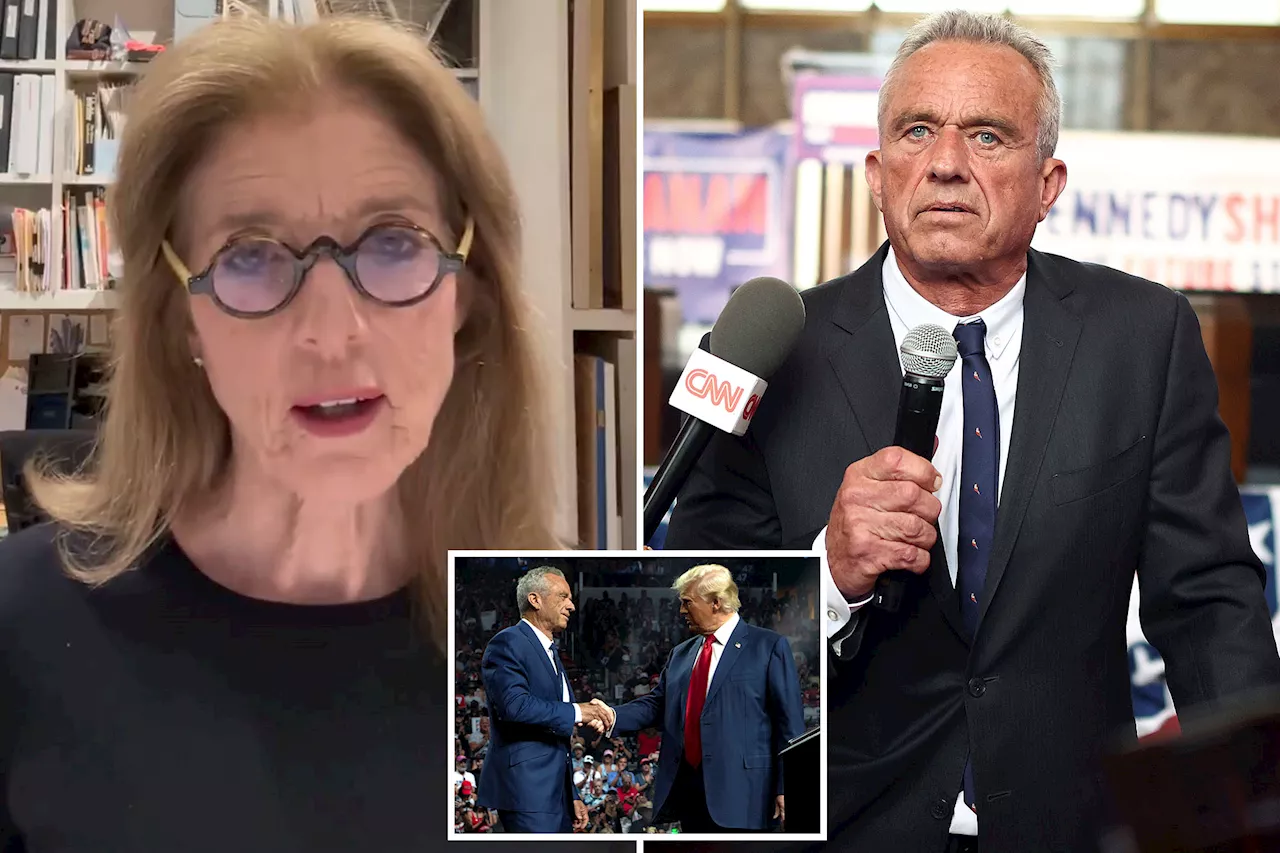 Caroline Kennedy Condemns Robert F. Kennedy Jr.'s HHS NominationCaroline Kennedy, daughter of former President John F. Kennedy, publicly criticizes her cousin, Robert F. Kennedy Jr., for his nomination as Health and Human Services Secretary. She calls him unqualified, warns of his dangerous views on vaccines, and labels him a 'predator' in a video message urging senators to reject the nomination.
Caroline Kennedy Condemns Robert F. Kennedy Jr.'s HHS NominationCaroline Kennedy, daughter of former President John F. Kennedy, publicly criticizes her cousin, Robert F. Kennedy Jr., for his nomination as Health and Human Services Secretary. She calls him unqualified, warns of his dangerous views on vaccines, and labels him a 'predator' in a video message urging senators to reject the nomination.
Read more »
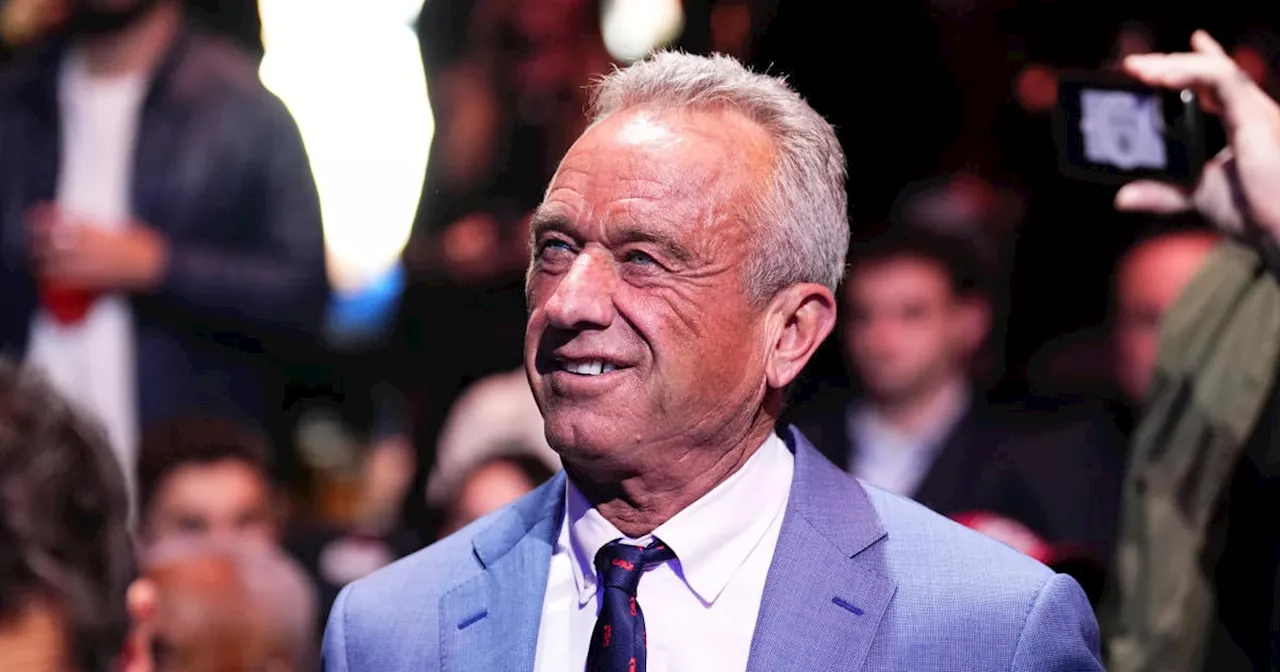 RFK Jr. Faces Senate Hearings on Controversial HHS NominationRobert F. Kennedy Jr., nominated by President Trump to lead the Department of Health and Human Services, will face crucial Senate hearings this week. His nomination is subject to a majority vote in the Senate Committee on Finance, which oversees Medicare and Medicaid, and the Senate Committee on Health, Education, Labor and Pensions (HELP), which oversees agencies like the CDC, FDA, and NIH. Kennedy's 'Make America Healthy Again' agenda, which includes questioning ultra-processed foods and synthetic additives, is expected to be a focal point. However, he faces criticism from both sides of the aisle, particularly regarding his stance on abortion rights.
RFK Jr. Faces Senate Hearings on Controversial HHS NominationRobert F. Kennedy Jr., nominated by President Trump to lead the Department of Health and Human Services, will face crucial Senate hearings this week. His nomination is subject to a majority vote in the Senate Committee on Finance, which oversees Medicare and Medicaid, and the Senate Committee on Health, Education, Labor and Pensions (HELP), which oversees agencies like the CDC, FDA, and NIH. Kennedy's 'Make America Healthy Again' agenda, which includes questioning ultra-processed foods and synthetic additives, is expected to be a focal point. However, he faces criticism from both sides of the aisle, particularly regarding his stance on abortion rights.
Read more »
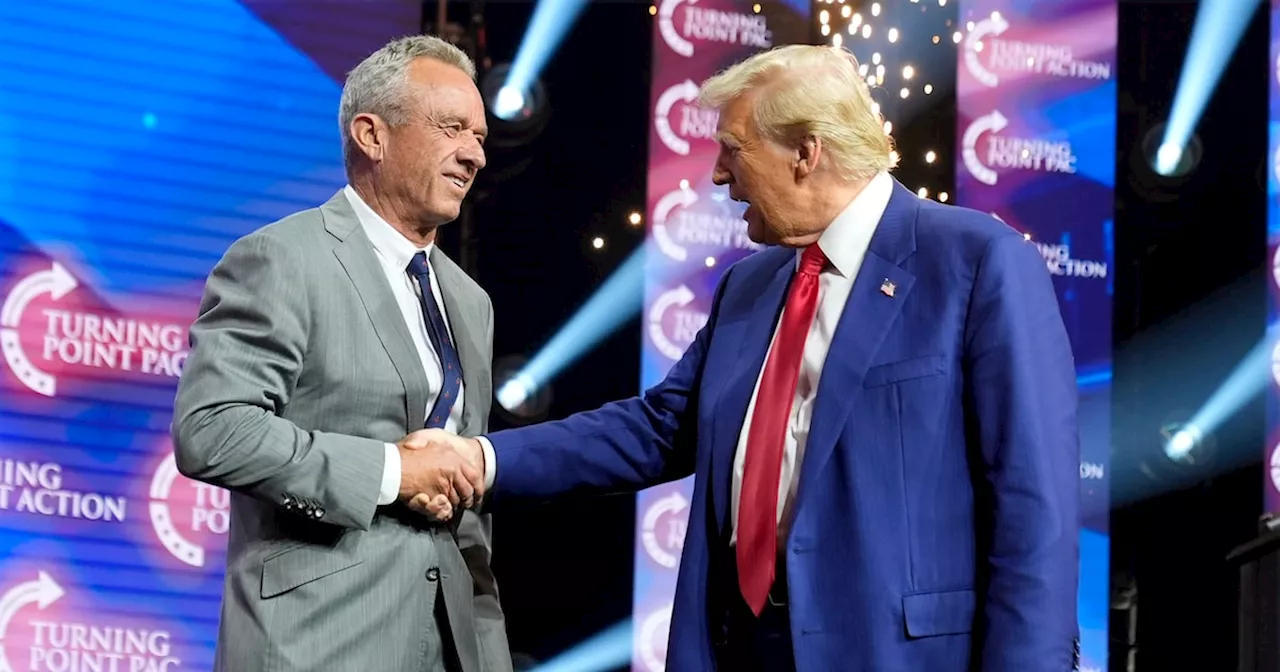 Kennedy's Nomination for HHS: A Call for Qualified LeadershipThe author criticizes the nomination of Robert F. Kennedy Jr., a vaccine skeptic, as the Health and Human Services secretary. They highlight his lack of qualifications in medicine, science, and organizational management, comparing his nomination to other unqualified appointments by President-elect Donald Trump. The author urges readers to contact their senators and insist on qualified nominees for critical administrative positions.
Kennedy's Nomination for HHS: A Call for Qualified LeadershipThe author criticizes the nomination of Robert F. Kennedy Jr., a vaccine skeptic, as the Health and Human Services secretary. They highlight his lack of qualifications in medicine, science, and organizational management, comparing his nomination to other unqualified appointments by President-elect Donald Trump. The author urges readers to contact their senators and insist on qualified nominees for critical administrative positions.
Read more »
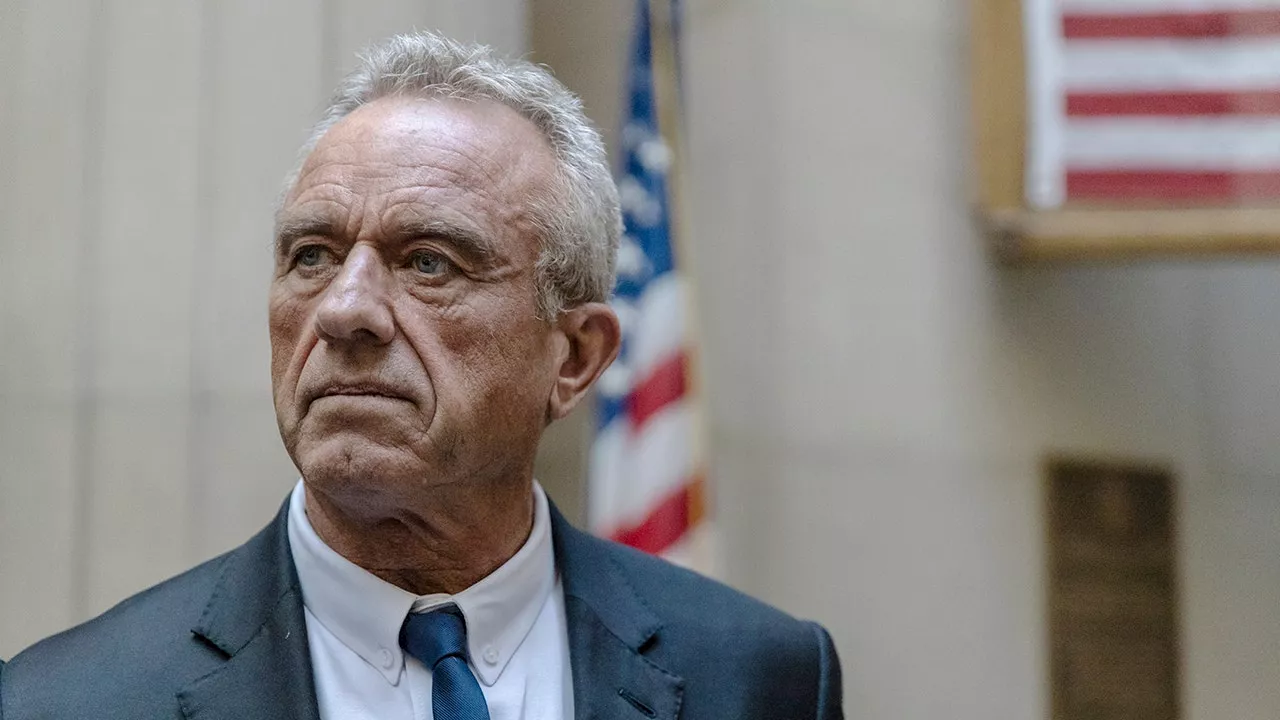 Hawaii Governor Lobbying Against Kennedy's HHS NominationHawaii Governor Josh Green is in Washington to lobby against Robert F. Kennedy Jr.'s nomination for HHS Secretary, citing concerns for children's safety.
Hawaii Governor Lobbying Against Kennedy's HHS NominationHawaii Governor Josh Green is in Washington to lobby against Robert F. Kennedy Jr.'s nomination for HHS Secretary, citing concerns for children's safety.
Read more »
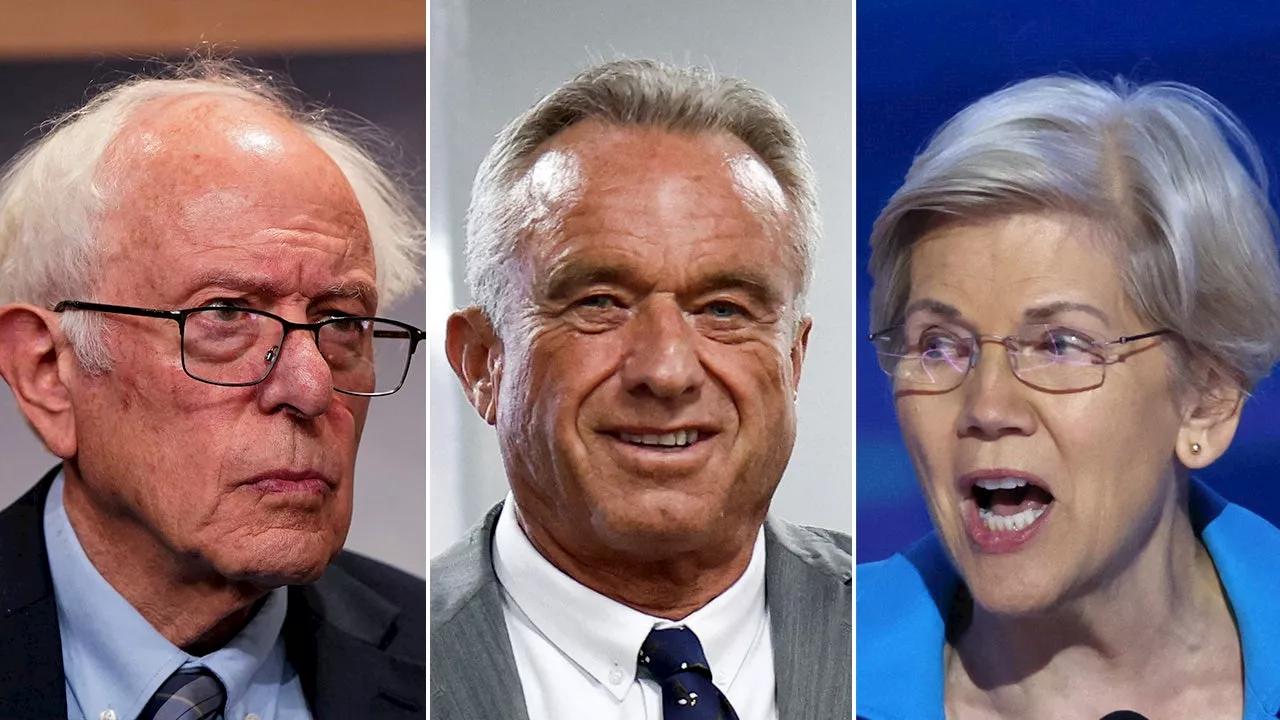 Kennedy Seeks Democratic Support for HHS NominationRobert F. Kennedy Jr. is meeting with a number of Democratic senators to garner support for his nomination to lead the Department of Health and Human Services (HHS). While he has already met with several Republicans, securing Democratic votes will be crucial for his confirmation.
Kennedy Seeks Democratic Support for HHS NominationRobert F. Kennedy Jr. is meeting with a number of Democratic senators to garner support for his nomination to lead the Department of Health and Human Services (HHS). While he has already met with several Republicans, securing Democratic votes will be crucial for his confirmation.
Read more »
 Doctors Slam Robert F. Kennedy Jr.'s HHS Nomination as 'Actively Dangerous'A group of physicians are denouncing the nomination of Robert F. Kennedy Jr. to lead the Department of Health and Human Services, calling him 'unqualified' and 'actively dangerous' due to his promotion of misinformation about vaccines and other health issues. The Committee to Protect Health Care, a physicians advocacy group, sent a letter to Congress urging senators to reject Kennedy's nomination, citing his history of spreading conspiracy theories and his lack of relevant experience. Kennedy, a prominent anti-vaccine activist, has been meeting with senators as his confirmation hearing approaches. His nomination has sparked widespread controversy and opposition from health professionals and public health organizations.
Doctors Slam Robert F. Kennedy Jr.'s HHS Nomination as 'Actively Dangerous'A group of physicians are denouncing the nomination of Robert F. Kennedy Jr. to lead the Department of Health and Human Services, calling him 'unqualified' and 'actively dangerous' due to his promotion of misinformation about vaccines and other health issues. The Committee to Protect Health Care, a physicians advocacy group, sent a letter to Congress urging senators to reject Kennedy's nomination, citing his history of spreading conspiracy theories and his lack of relevant experience. Kennedy, a prominent anti-vaccine activist, has been meeting with senators as his confirmation hearing approaches. His nomination has sparked widespread controversy and opposition from health professionals and public health organizations.
Read more »
